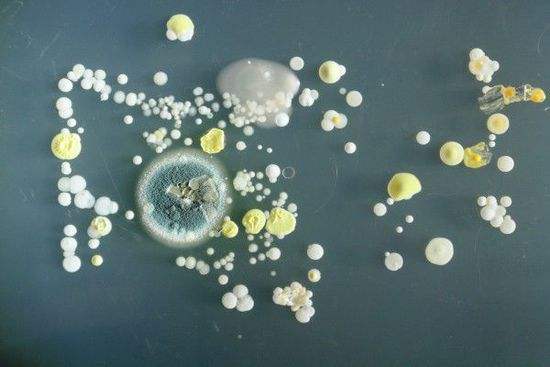(单词翻译:单击)
Bacteria do it all the time without fuss, and thank goodness, for no larger organism could survive without the nitrogen they pass on. Above all, microbes continue to provide us with the air we breathe and to keep the atmosphere stable. Microbes, including the modern versions of cyanobacteria, supply the greater part of the planet's breathable oxygen. Algae and other tiny organisms bubbling away in the sea blow out about 150 billion kilos of the stuff every year.
而细菌一直在不慌不忙地干这件事。谢天谢地,要是没有它们来传送氮,大的生物就活不下去。尤其重要的是,细菌们不断为我们提供我们所呼吸的空气并使大气保持稳定。包括现代型的藻青菌在内的细菌,提供了地球上供呼吸用的大部分氧。海藻和海里的其他微生物每年大约吐出1500亿立方公里那种气体。
And they are amazingly prolific. The more frantic among them can yield a new generation in less than ten minutes; Clostridium perfringens, the disagreeable little organism that causes gangrene, can reproduce in nine minutes. At such a rate, a single bacterium could theoretically produce more offspring in two days than there are protons in the universe. "Given an adequate supply of nutrients, a single bacterial cell can generate 280,000 billion individuals in a single day," according to the Belgian biochemist and Nobel laureate Christian de Duve. In the same period, a human cell can just about manage a single division.
而且,细菌的繁殖力极强。其中劲头大的在不到10分钟里便能产生新的一代;那种引起坏疽的讨厌的小生物“产气荚膜梭菌”在9分钟里就可以繁殖,接着又马上开始分裂。以这种速度,从理论上说,一个细菌两天内产生后代比宇宙里的质子还多。据比利时生物化学家、诺贝尔奖获得者克里斯琴·德迪夫说:“要是给予充分的营养,一个细菌细胞在一天之内可以产生280万亿个个体。”而在同样的时间里,人的细胞大约只能分裂一次。
About once every million divisions, they produce a mutant. Usually this is bad luck for the mutant—change is always risky for an organism—but just occasionally the new bacterium is endowed with some accidental advantage, such as the ability to elude or shrug off an attack of antibiotics.
大约每分裂100万闪,便会产生一个突变体。这对突变体来说通常是很不幸的——对生物来说,变化总是蕴藏着危险——只是偶然的情况下,一个新的细菌会碰巧具有某种优势,比如摆脱或抵御抗生素的能力。


